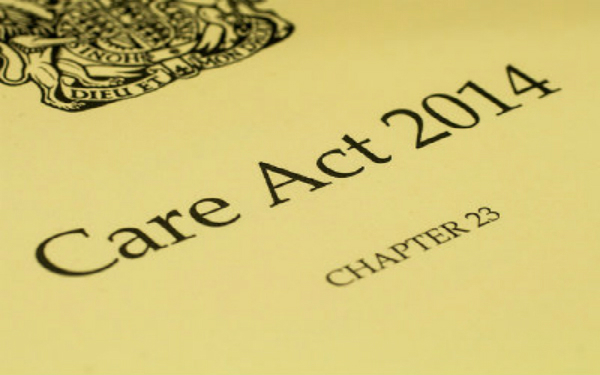
The government will drop provisions in the Coronavirus Act 2020 that allow councils to suspend parts of the Care Act 2014, but the temporary register for former social workers will remain in place for the time being.
The changes will be formally agreed today when MPs vote on the renewal of the Coronavirus Act for a further six months.
The so-called Care Act easements – which were highly controversial when they passed into law last March – allowed councils to suspend duties to assess needs, carry out financial assessments and make support plans. They also enabled councils to refuse to meet needs they would normally be under a duty to meet so long as they did not breach the person’s human rights in the process.
The measure was designed to enable councils to respond if a spike in demand and a depletion of their workforces meant they were unable to fulfil their duties under the Care Act. However, they were strongly criticised as undermining people’s entitlements to care.
In a report reviewing the first year of the Coronavirus Act, the government said only eight local authorities had used these powers, but not since 29 June 2020. Only two councils – Derbyshire and Solihull -have made use of the most significant easement suspending the duty to meet need.
‘Social work has been resilient’
The report said there was strong support from groups representing people who needed care and support for removing the easements as “the social care workforce, particularly social workers, have remained reasonably resilient under significant pressure and continued to deliver these duties without the need to operate under easements”.
Despite initial concerns over the impact of the pandemic, the report said local authorities had coped with “significant pressures over winter using the existing Care Act flexibilities’ and are now in a better position in terms of planning, support and use of mutual aid”.
Responding to the announcement, joint chairs of the Adult Principal Social Worker Network Jenefer Rees and Simon Homes said: “Some welcome the decision and others feel it’s a little early to be ceasing the easements as we are not out of the woods with coronavirus yet. Easements have provided a framework but response to demands on capacity are often better managed locally.
“There are going to be longer term impacts of the pandemic and the disease itself to manage. Very few local authorities have enacted the easements when capacity, resources and workforce burnout continue to be very real issues for the sector.”
Similar provisions enabling Welsh authorities to suspend duties under the Social Services and Well-being (Wales) Act – which none used – were suspended this week.
Temporary register remains despite low take-up
However, the government has decided to continue with the temporary register for former social workers, despite apparently few people using it.
Over 14,000 people who have left the main register in England since March 2018 are currently temporarily registered, meaning they can practise as social workers.
Related articles
Chief social workers say suspension of Care Act duties should continue through winter
One council left suspending Care Act duties as authority subject to legal challenge returns to full compliance
Just two councils left suspending Care Act duties as West Midlands authorities return to full compliance
A campaign, run by the Local Government Association (LGA) and Social Work England, was launched in April 2020 to match temporarily registered practitioners with employers who needed additional staff.
However, the one-year review of the Coronavirus Act said that just 300 temporary registrants were currently making themselves available as a result of the campaign. Of these just 18 have been employed by councils, though the government stressed “there are likely to be others not known to us as they don’t have to be employed through this system”.
It added: “Though the number of temporary registrants returning to the profession to date remains relatively low, the temporary register remains important to local authority workforce planning as they continue to respond to Covid-19 related pressures.”
Temporarily registered staff are allowed to practise in the same way as registered social workers and are not required to pay registration fees or face fitness to practise action. However, they can be removed from the temporary register on the basis of concerns raised.
A similar temporary register has been set up – under the Coronavirus Act – in Wales, though joining this is voluntary for former practitioners, rather than by default, as in England. As of today, 78 former practitioners have chosen to join the Welsh temporary register.


 Bournemouth, Christchurch and Poole
Bournemouth, Christchurch and Poole  Hampshire County Council
Hampshire County Council  Lincolnshire County Council
Lincolnshire County Council  Norfolk County Council
Norfolk County Council  Northamptonshire Children’s Trust
Northamptonshire Children’s Trust  South Gloucestershire Council
South Gloucestershire Council  Wiltshire Council
Wiltshire Council  Wokingham Borough Council
Wokingham Borough Council  Children and young people with SEND are ‘valued and prioritised’ in Wiltshire, find inspectors
Children and young people with SEND are ‘valued and prioritised’ in Wiltshire, find inspectors  How specialist refugee teams benefit young people and social workers
How specialist refugee teams benefit young people and social workers  Podcast: returning to social work after becoming a first-time parent
Podcast: returning to social work after becoming a first-time parent  Podcast: would you work for an inadequate-rated service?
Podcast: would you work for an inadequate-rated service?  Family help: one local authority’s experience of the model
Family help: one local authority’s experience of the model  Workforce Insights – showcasing a selection of the sector’s top recruiters
Workforce Insights – showcasing a selection of the sector’s top recruiters 

 Facebook
Facebook X
X LinkedIn
LinkedIn Instagram
Instagram
[…] Supply hyperlink […]